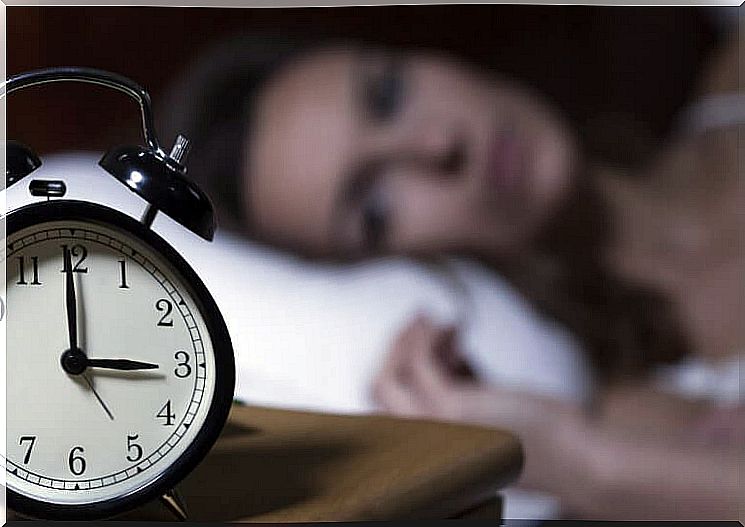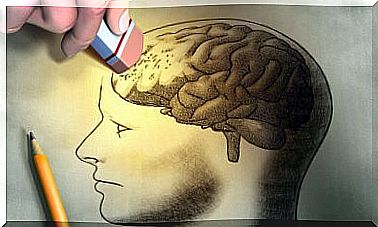Diabetes And Sleep Problems: A Very Common Relationship

Did you know that fluctuations in blood sugar levels can be the cause of sleep problems and lack of rest? Diabetes and sleep problems are linked. This is undoubtedly a problem that not many people know about. Nevertheless, it affects a large proportion of the population suffering from diabetes.
Sleep disorders are common in people with type 2 diabetes, and usually manifest in different ways. These can range from classic restless legs to sleep apnea or an increased need to go to the toilet at night. All these factors lead to unsatisfactory rest, daytime fatigue and even to an intensification of the disease itself.
It is therefore necessary to mention such problems and symptoms when consulting your doctor. In fact, the treatment for this type of nocturnal disorder may be easier than you think. Below we give you all the information you need.
Diabetes and sleep problems: what is it that connects them?

As we already know, diabetes is a disease in which the body has trouble producing an adequate level of insulin by itself. This results in glucose peaks that are undoubtedly very dangerous.
In the case of type 1 diabetes, it is the pancreas that cannot produce insulin. When it comes to type 2 diabetes, the problem is a little different: the body can produce insulin, but it does not at an optimal level .
What is interesting is that patients with type 2 diabetes tend to suffer from major sleep disorders, mainly due to these fluctuations in blood sugar levels.
Let’s take a look at what problems arise and what their origins are.
Excessive urination at night
Diabetes and sleep problems are related in several ways, but the most common is when a person feels a need to get up 2-3 times a night to go to the toilet or drink water. High blood sugar levels cause a more frequent need to urinate.
When our body has an elevated level of glucose in the blood, it usually draws water from the tissues. This leads to dehydration and thus thirst. By drinking 1 or 2 glasses of water in the evening, we will feel a greater need to go to the toilet. It’s a vicious circle!
At the same time, we should not forget that a low blood sugar level coincides with feelings of illness, dizziness and sweating. This, in turn, affects the quality of rest.
Sleep apnea

Sleep apnea is usually very common in people with diabetes. However, the origin of this symptom is usually weight problems. It is common for people with type 2 diabetes to suffer from obesity. This puts more pressure on the chest and thus limits the passage of air during nighttime sleep.
Snoring is not always safe. We must be aware of this. Diabetes and sleep problems are linked, and therefore we must remember that everyone who snores at night can suffer from more serious health problems. Do not forget that apnea means a temporary cessation of breathing. Therefore, in cases where snoring is frequent, we suffer from a lower blood oxygen concentration.
Restless legs
It can be difficult for us to see the connection between restless legs and diabetes. On the other hand, the link is closer than you might think. This nocturnal disorder usually has several possible causes, including iron deficiency, high blood glucose levels and kidney problems. In addition, if you are a smoker, the likelihood of developing restless legs increases significantly.
It is therefore important to have periodic check-ups with your doctor. Sometimes something as common as anemia can intensify your diabetes problems by developing this symptom.
How can you improve the quality of your rest if you have type 2 diabetes?

Learn how to improve your sleep habits with these simple guidelines.
Your diet
- For example, to improve the quality of your rest and avoid having to go to the toilet at night, it is a good idea to drink less fluids before going to bed.
- Avoid stimulant drinks such as caffeine, certain shakes or infusions.
Some training in the afternoon
- Exercising regularly improves the quality of your rest.
Avoid electronic devices
- Two hours before going to bed, it is a good idea to put away cell phones, laptops, tablets, etc.
- These devices make your brain overactive and affect sleep quality.
Yes to schedules
It is important to always try to follow the same schedules. Try to eat and go to bed at the same time every day and develop other daily habits. These guidelines and routines allow us to better adjust our circadian rhythms, thus improving our health and rest.
Periodic medical examinations
Since diabetes and sleep problems are closely related, it is best to remember how important it is to talk to a doctor about any questions, problems or symptoms you are experiencing.
Also, do not forget the periodic checkups to monitor diabetes and keep an eye on your weight, possible nutritional deficiencies, heart health, etc.
All of these factors are also related to your rest. That is why it is important to improve your lifestyle. Take care of yourself so that diabetes does not affect your quality of life. It’s worth it!









